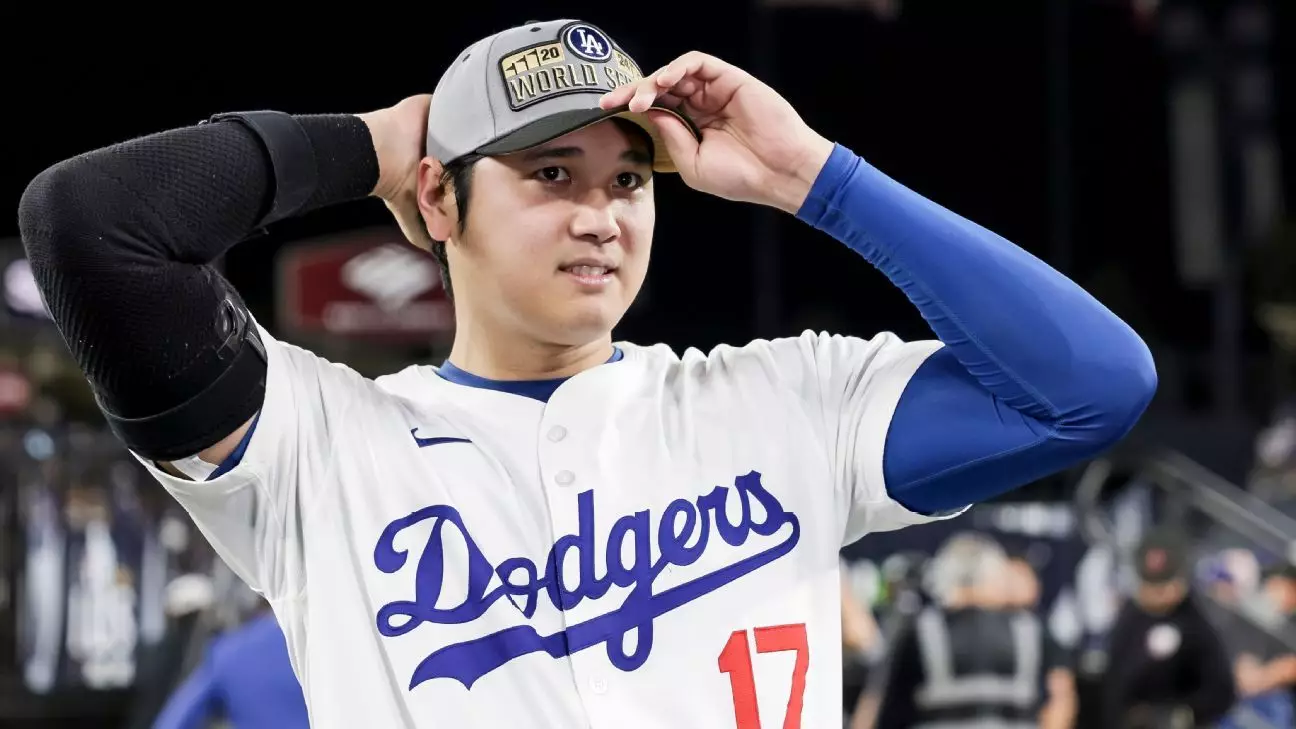Unpacking the Legacy of Major League Baseball’s MVP Awards
There’s something magical about baseball that seems to captivate us season after season. For me, it’s not just the crack of the bat or the roar of the crowd. It’s the stories behind each player, each moment, and each accolade that breathe life into the sport. Among these accolades, the Most Valuable Player (MVP) award holds a special place. It’s an honor that celebrates extraordinary talent and contributions within Major League Baseball, both in the American and National Leagues.
As a lifelong baseball fan, I find myself eagerly anticipating MVP announcements each year. It’s a moment that encapsulates months of anticipation and excitement. Who will be recognized as the most influential player in their league? How will their achievements shape the narrative of their team and inspire others? These questions remind me why I love writing about baseball’s rich tapestry of history and tradition.
This article is my way of diving deep into the legacy of the MVP award—its historical roots, its evolution over time, and its significance today. Join me as we explore how this prestigious accolade has become a symbol of excellence, influencing generations of players and fans alike.
Key Takeaways
- The MVP award has evolved from its origins as the Chalmers Award in 1911 to its current form under the BBWAA since 1931.
- Criteria for the MVP have shifted over time, reflecting changes in how we perceive value in sports.
- Recent MVP winners like Aaron Judge and Shohei Ohtani highlight the diverse talents celebrated in today’s game.
The Evolution of the MVP Award
The MVP award we recognize today has undergone significant transformations since its inception. Initially introduced as the Chalmers Award in 1911, it was meant to honor players who were not only statistically superior but also vital to their teams. The Baseball Writers’ Association of America (BBWAA) took over voting responsibilities in 1931, shaping how we view “value” in baseball ever since. This shift highlights a long-standing tradition of recognizing players for their all-encompassing contributions on and off the field.
In the early years, criteria for winning were far from consistent. From 1922 to 1929, the League Award emphasized a player’s overall service to their club while preventing former winners from claiming it again during its era. This cyclical approach to “value” reveals how subjective greatness can be across different periods. It serves as a testament to baseball’s evolving understanding of what it means to contribute meaningfully to a team’s success.
A Contemporary Look at Recent Winners
Fast forward to recent seasons, where discussions around MVP awards have intensified with new metrics coming into play. In 2024, Aaron Judge of the New York Yankees clinched the AL MVP title while Shohei Ohtani from the Los Angeles Dodgers was crowned for his performance in the NL. Their victories symbolize a broader trend: celebrating multifaceted players who impact games through diverse skill sets.

Shohei Ohtani is particularly noteworthy for his dual-threat capabilities as both an exceptional pitcher and hitter. His achievements signal a shift towards appreciating versatility within baseball—a trait that has become increasingly valued when considering candidates for this prestigious award. Meanwhile, Aaron Judge continues to embody traditional notions of power hitting that resonate deeply within fans’ hearts.
The Changing Criteria for MVP Consideration
The criteria for determining an MVP have expanded significantly over time due largely to advancements in statistical analysis tools available today—metrics like on-base plus slugging (OPS), Wins Above Replacement (WAR), among others now play crucial roles during evaluations compared against traditional measures such as batting averages or home runs alone.
This transformation raises intriguing questions about defining value beyond mere numbers: What makes someone truly valuable? Is it leadership? Clutch performances during critical moments? Or perhaps even intangibles like inspiring teammates towards greater heights? As fans navigating our biases within these conversations becomes essential; recognizing various attributes contributing towards earning prestigious titles like Most Valuable Player remains paramount amidst ongoing debates surrounding its true essence within sport’s realm today!
The Broader Impact of Winning an MVP Award
Winning an MVP title transcends personal milestones—it influences entire franchises by shaping contract negotiations’ dynamics alongside enhancing fan engagement levels while also affecting public perceptions regarding competitive stature held by respective teams involved therein too! Icons emerge through such recognition whose reach extends well beyond mere baseball diamonds into realms encompassing merchandise sales narratives spread across media outlets globally too!

MVPs become symbols embodying ideals where excellence gets pursued relentlessly celebrated wholeheartedly—ultimately serving aspirational beacons guiding future generations interested partaking actively within sports endeavors themselves someday perhaps even achieving similar accolades down road eventually perhaps?
Final Thoughts
The legacy surrounding Major League Baseball’s Most Valuable Player awards goes far beyond simple statistics; instead acting barometer greatness reflecting individual excellence ever-evolving definitions regarding perceived value found amongst athletes worldwide today! As phenomenal talents continue emerging redefining what constitutes “valuable,” remember MLB’s iconic accolade stands constant reminder pursuit greatness lies heart every sporting endeavor embarked upon collectively together united under shared passion beloved pastime cherished dearly alike everywhere universally acknowledged universally revered eternally remembered fondly cherished warmly embraced lovingly celebrated passionately pursued fervently dedicated wholeheartedly appreciated sincerely cherished!
MLB
MVP Awards
Baseball History
Sports Legacy


Leave a Reply